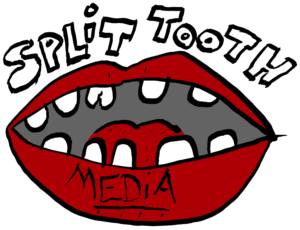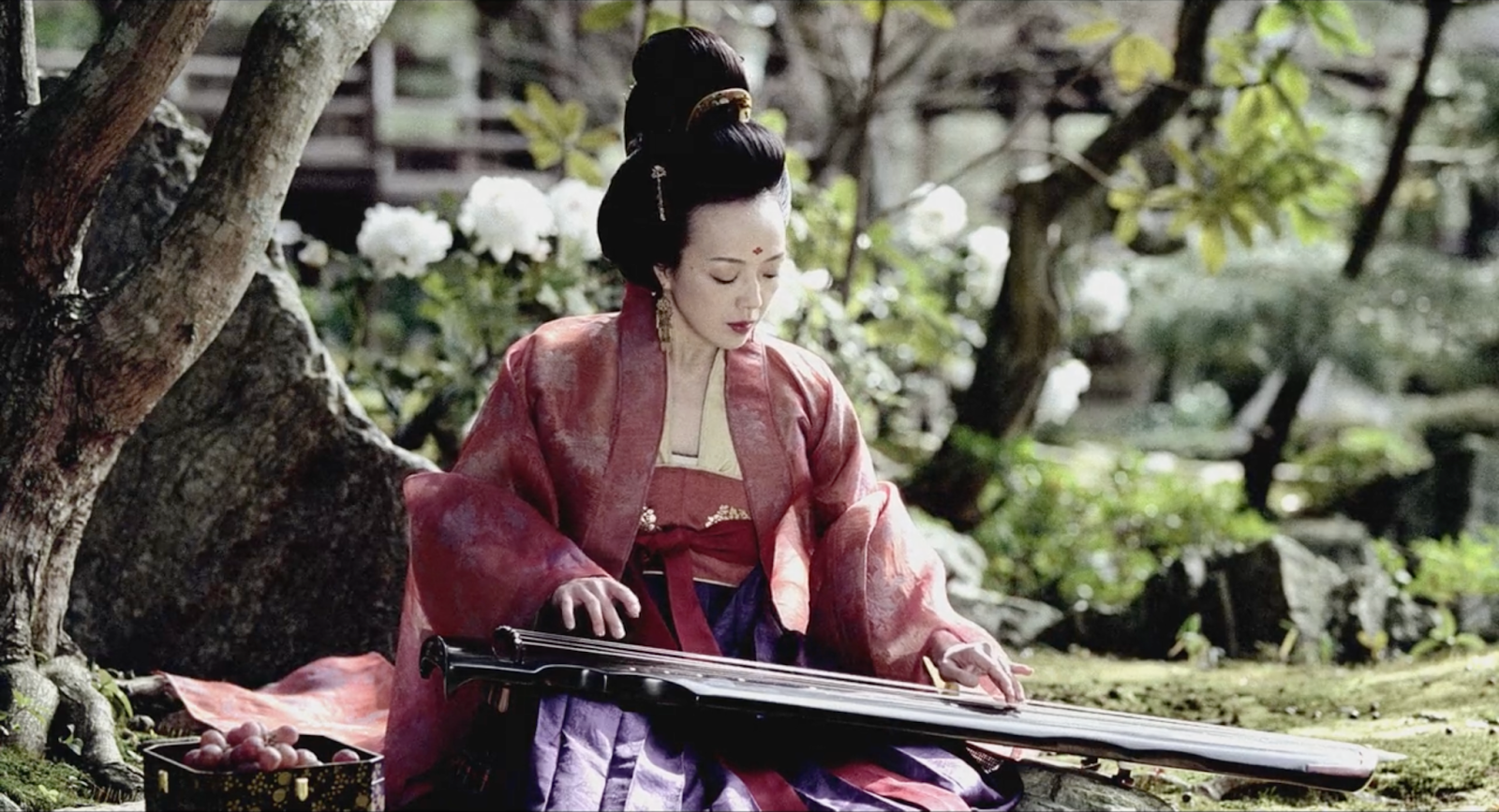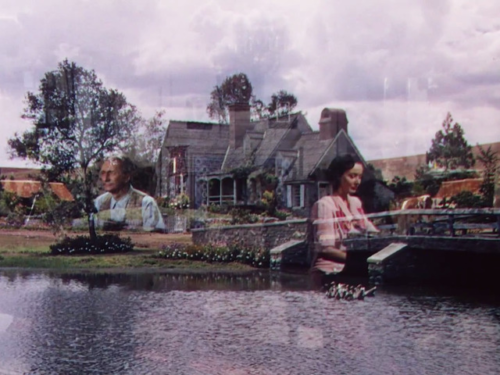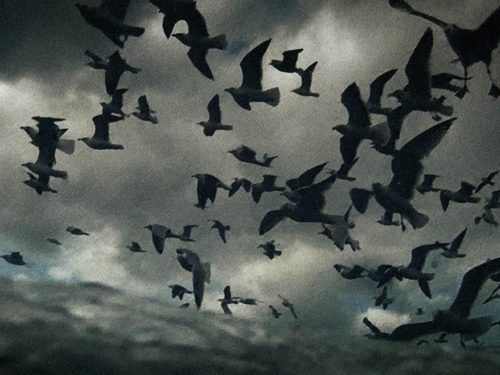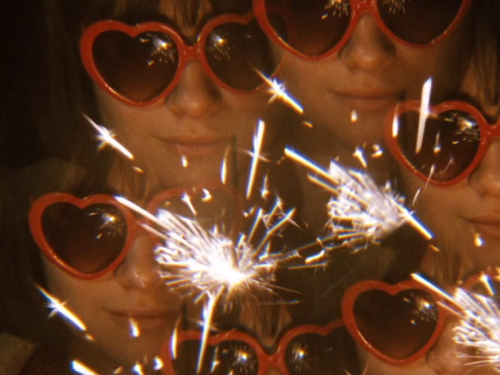Hou’s film is a swordswoman saga told in ellipses and dilations. It’s his unique attempt to reverse engineer ancient Chinese history
The ninth century had a minor moment this year. Robert Eggers’ doomy quasi-blockbuster The Northman, a black-metal viking saga revenge thriller set in A.D. 895, was lauded for its brutality and obsessive research, for savoring the finer points of pillaging and plundering as recounted by Saxo Grammaticus in the legend of Amleth. The spine of the movie is ram-rod straight: a hulking man avenges his family by seeking out and battling the uncle who betrayed them. All roads lead to Alexander Skarsgård and Claes Bang nude on top of a volcano, locked in mortal combat. Such a familiar narrative courts and rewards the audience’s sympathies. After making it to this inevitable duel to the death, the detours, graphic flourishes, mad dramatics, tortured accents, and mystical hokum feel almost disingenuous, distractions from the inevitable. What could be, or should be, a brutalist, primal, morally ugly gauntlet instead has shades of incongruous romanticism. In sequences like the early single-shot raid of a helpless village, we see the protagonist as a product of the worst parts of his region’s history. The film tries to make the case that the past is a grotesque hellscape. But, ultimately, the shrieking valkyries, romantic subplot, final showdown, and ascension to Valhalla add up to a vision that is damn near crowd-pleasing. Is this world pitiless, cruel, bestial, and irredeemable? Is it wondrous and fascinating, full of hope for our future enlightenment? Or is it just a ludicrous thrill ride, a vehicle for muscular bodies swinging iron? And what of the pillaged? Where is their transcendence?
Most period pieces are beholden to contemporary narrative conventions. It’s almost a reflex, an unavoidable impulse — or a market demand — to squeeze bygone details within a recognizable framework. The pacing conforms to contemporary styles and narrative rhythms; the stories present familiar beats, tropes, and audience surrogates; the set-design is too perfect and not lived-in; the actors’ mannerisms are anachronistic and blatantly performative. The recreated past feels like just that: constructed, pastiche, artificial. Another recent vision of the ninth century functions as a retroactive counterpoint: Taiwanese master Hou Hsiao-hsien’s The Assassin (2015). Not only is it one of this century’s most beautiful films, it’s also admirable for its willingness to be thoroughly confounding. It’s a uniquely alienating film, one that renders the distant past as an unknowable, surreal environment.
Many films try to depict the ancient past as inscrutable and outlandish, but The Assassin actually accomplishes it. Hou’s film is brilliantly withholding and genuinely mysterious. It’s among the most fascinating, beguiling, and frustrating genre exercises in recent memory, sitting alongside the likes of Bela Tarr’s The Turin Horse (2012), Ben Wheatley’s A Field in England (2013), Lacrecia Martel’s Zama (2017), Aleksei German’s Hard to Be a God (2013), and Kelly Reichardt’s Meek’s Cutoff (2010) as one of the 21st century’s most challenging visions of the distant past. And it earns its place in a lineage of radically unconventional period pieces from iconic filmmakers, with echoes of Stanley Kubrick’s Barry Lyndon (1975), Werner Herzog’s Aguirre, the Wrath of God (1972), and Robert Bresson’s Lancelot du Lac (1974).

Based on the chuangi short story Nie Yinniang, a core Chinese text by the Tang Dynasty writer and poet Pei Xing, The Assassin replicates the expected elements of its genre — the martial arts wuxia film. But Hou deliberately, methodically keeps the viewer at a distance, sometimes literally. Hou’s artistic dogma of self-imposed formal restrictions, of freedom resulting from constraint, holds true even as he redraws the boundaries of his stylistic palette. His metaphysical approach fits with the source, when the elements of the wuxia style were nascent, undefined, and decentralized, before the genre was codified during the Song Dynasty. The idea for this adaptation dates back to Hou’s early career; it’s one he’d been discussing in interviews decades before it came to fruition. It emerged after his longest gap between films — Flight of the Red Balloon was released eight years prior, in 2007 — and proved to be an arduous shoot. It sits as Hou’s last credit to date, suspended between two long blocks of silence.
Hou waited for the exact right moment to plunge into wuxia lore. He speaks of it as both serendipitous and inevitable. The film was shot by the great Taiwanese cinematographer Mark Lee Ping-bing, best known for his longtime collaboration with Hou on such films as The Time to Live and the Time to Die (1985), Flowers of Shanghai (1998),and Millennium Mambo (2001), as well as for his unforgettable work on Wong Kar-wai’s In the Mood for Love (2000). Together, they shot over 500,000 feet of 35mm film in agrarian villages in Hubei Province, imposing forests in Mongolia, and impeccably crafted sets at the Central Motion Picture Corporation studio in Taiwan. Hou’s frequent leading actress Shu Qi stars as the titular character, and she reunites with her Three Times (2005) costar Chang Chen, a wuxia veteran who appeared in the trifecta of Crouching Tiger, Hidden Dragon (2000), Red Cliff (2008), and The Grandmaster (2013). Sound designer Tu Tu-chih and production designer Huang Wen-ying are also longtime, intimate collaborators with Hou, and they do some of their most intricate work in The Assassin. Composer Lim Giong’s delicate score combines traditional instruments — notably the slow, steady drums derived from the Tang era custom of bookending each day with 3,000 beats in the morning and 500 at night — and light, pulsing anachronisms, mixed under the hyperreal ambience of the environments.

The Assassin is a film that is both minimalist and lavish, full of political intrigue but nearly devoid of exposition. It’s sumptuous but elusive, richly textured but hazy, rigorously orchestrated but arrhythmic. Hou’s signature, subtle long takes continue to dominate, contrasting nearly identical compositions, sometimes within the same slowly panning shot, to reveal almost imperceptible visual changes as the atmosphere of a room shifts. Important scenes are frequently seen from a great distance, limiting the viewer’s legibility and investment and allowing the lush, verdant settings to swallow the action. But the fight scenes are the true departure and experiment. They’re intimate, minced exchanges; we are placed so close, and the cutting is so jagged, that the movements and spatial dynamics are disorienting. They are unsatisfying flashes of sensation that exist at the edge of perception, flaring up and dissipating just as quickly — prime examples of what David Bordwell calls “the glimpse.”
The graceful movements and piercing sound of ringing metal create the impression of blades striking, even if it’s never seen. Apart from the highly stylized, gravity-defying choreography of most modern martial arts pictures, these sequences are short, sharp, and clearly inspired more by samurai cinema. The shifting tempos, jump cuts, and opaque ruminative passages still bear Hou’s stated influence of the French New Wave. Legendary Chinese filmmaker King Hu, who revolutionized the wuxia genre in the ’60s and ’70s, also looms, with Hou invoking the purity of Hu’s cut-up fight sequences but, more importantly, in the extended contemplative passages common of key early films such as A Touch of Zen (1971) and Raining on the Mountain (1979). Despite its monolithic title, Hou’s film is a swordswoman saga told in ellipses and dilations. It’s his unique attempt to reverse-engineer ancient Chinese history.
On paper, The Assassin holds true to wuxia principles, styles, and beats. There are balletic sword fights; dark magic; wirework; vibrant drawing rooms; dense forests; provincial infighting; codes, rituals, and fealty; class stratification; and a spiritual Taoist underpinning that saturates the entirety of the worldview. In practice, the way these elements collide and coalesce is practically avant-garde, without being revisionist or synthetic. Hou takes this style seriously, imbuing it with his personal sensibility and undiminished devotion to authenticity. The conception of this imagined past is so complete, and the vision, tone, and pacing so singular, the film operates on a wavelength all its own, with an air-tight internal logic. Plotting, character traits and motivations, actions and reactions, temporality, spatial relations, and coherence are downplayed in favor of texture and sensation. Stunning compositions, choruses of insects and birdsong, saturated color palettes — alternating golds, reds, blues, and greens captured in-camera — and unpredictable pauses and accelerations take precedence. In blending elements of the assassin thriller, the wuxia martial arts epic, the political drama, and the philosophical art film The Assassin feels mythic. It sets the stakes high, with the empire in decline and the balance of power on the brink, but it takes place over a limited timeframe and within a limited array of settings. Its scope is modest but its vistas are breathtaking.
At its core, the film is the tale of a failed mission. Over the course of a single, prolonged assignment, the main character reckons with her past and regains her independence. The specific historical moment that Hou zeroes in on is rich with significance. Historians generally regard the Tang era as a high point in Chinese civilization, a golden age of cosmopolitan culture and flourishing art at the height of the Silk Road. The Assassin takes place at the tail-end of this timeframe, as the region is sliding into its next phase, collapsing into near-constant warfare during the Five Dynasties and Ten Kingdoms period. As The Assassin opens, the Tang Dynasty is in decline and the militarized provinces’ loyalty to the court is wavering. Nie Yinniang (Shu Qui), the eponymous assassin, is ordered by her master, Princess-Nun Jiaxin (Fang-yi Sheu), to kill her cousin Tian Ji’an (Chang Chen), a mission designed to test her loyalty and further strip her humanity after she faltered on a recent assignment. The two were close when they were young, and their bond was deemed important for the power balance in their province, but their paths diverged early on. Yinniang was sent away to train at a young age and Tian Ji’an assumed his role as a powerful military leader, a jiedushi, in the strategically important stronghold of Weibo.

Yinniang moves through this world like a ghost, hanging on the periphery — in the dark corners of a room, obscured by gossamer curtains and shadows, or perched in the rafters above the earthly dealings of the representatives or families below — silently, stoically observing, her gaze both predatory and longing. Hou leaves these glimpses of a looming Yinniang isolated; it’s almost as if she exists on a different plane, out of phase. These moments are prime examples of Hou’s minimalism at work, creating a consistent sense that the pieces are adjacent but not interlocking. Yinniang’s presence is often more felt than seen. It’s striking how little the assassin actually appears in The Assassin. She’s a cypher who gradually, gently reveals hints of an inner life. Her motivations are mysterious and stand apart from the single-mindedness typical of wuxia protagonists. Her passivity recalibrates the trope of the peerless, untouchable vigilante warrior. For most of the running time she doesn’t speak.
She breaks her silence, exposing a vulnerability and interiority that was carefully concealed, more than halfway through the film, when she softly recalls the tragic fable of the King of Kophen’s bluebird. This tale is heard earlier in the film from Princess Jiacheng during another unexplained segment — the film’s only widescreen composition — where she is seen in a verdant enclave playing a guiqin. The subtlety of these connections requires an intense focus and repeat viewings. The mystery and meaning of these strands slowly comes into focus over time, but reveals new depths to explore. The film climaxes with the eventual confrontation between Yinniang and Tian, the sudden endpoint of a drawn-out, meandering journey. With a sword to her target’s throat, Yinniang is forced to decide Tian Ji’an’s fate, and the subsequent fallout for the empire. Once more, she withdraws. Yinniang returns to the mountaintop to report her failure to Princess Jiaxin. “Your mind is still hostage to human sentiment,” she’s told in response. They briefly exchange blows but part ways in a stalemate. Yinniang returns to the village where she had previously decamped during her journey, gently asserting her freedom and reentering the world of the living.
Working without storyboards or shot lists, with very little of the dialogue written out, Hou relies heavily on the experience of being present in a constructed environment and responding to the atmosphere that is manifested. Sets are carefully arranged and rearranged until a perfect equilibrium is achieved. Every interstitial nature shot is precise and intentional, functioning as its own thematically rich syntagm and not confined to its function as a master shot, establishing shot, or marker of time. The natural phenomena of the environment are part of the artistic language. The many majestic, sustained landscape compositions that break up the film, reminiscent of Tang painters such as Zhan Ziqian and Li Sixun, are uncannily orchestrated, with gradations of color, flickering bokeh from candlelight, clouds enveloping a cliffside on a humid day, birds, sheep, mist, and wind summoned and arranged with preternatural control. The interior settings are dimly lit, full of shadows and gauzy silk curtains, purdahs, and byobu. Characters fade into the surroundings, appear and disappear from behind the dividers, while the colorful clothing, fine decor, and deep shadows bleed together. Supernatural touches emerge throughout: gravity-defying descents, sentient smoke.

Hou’s approach conforms with the pace of life in the distant past, steeped in the mesmerizing detail of daily existence as we imagine it once was. The film teems with life, the omnipresent buzzing, chirping, and gusts imbuing it with an elemental, organic pulse, a symbiosis between human travails and the order and rhythms of nature. But it also feels enclosed, a sealed-off time period that can only be accessed in fragments and tableaus rich with hidden meaning, windows into a sea of historical significance. From a Western perspective, the film is especially impenetrable, the density of cultural signifiers anesthetizing. The fallback is to fawn over the painterly compositions, elaborate wardrobes, and elegant decor. But describing The Assassin as “immersive” discounts Hou’s singular aesthetic and his offbeat storytelling, which are in full bloom. The family dynamics are difficult to untangle, with Yinniang and Tian Ji’an’s intertwining family trees braided into the regional governance. And the ideology of the piece is decidedly difficult to parse. One could view the central conflict between the court and the province of Weibo at the heart of the film as an allegory for the longstanding tensions between China and Taiwan, a situation that many fear is on the brink of escalation. But Hou’s statements about the film are, expectedly, pragmatic and grounded in his artistic values.
There’s an eerie, haunted, melancholic essence to The Assassin that defies categorization. The dialogue in the film, performed in the dialect of guwen, or Classic Chinese, frequently takes the form of parables or lingering memories. And, in the fight sequences, Hou is attentive to the fact that in martial arts each movement has a precise meaning, and that each person’s practice is an extension of their personality. Heated moments aren’t accentuated or overplayed. The film combines the restrained acting style of the art film with glints of melodrama. Brief ruptures in decorum — emotional outbursts that register as confusing and faintly absurd — test our investment as we try to make sense of convoluted histories and dynastic infighting. “I am in favor of realism in movies and am against the theatricalization of action,” Hou has said. “I hate explanation in films, especially anything related to psychology.” Hou’s muted take on wuxia is expressed as more than a code or style; it’s a slowly evolving, never-resolved worldview observed in something lengthier than real time. The longer you stare at this sublime transmission from an indecipherable past, the more it reads like mind-bending science fiction.
Stream The Assassin on Amazon Prime
Stay up to date with all things Split Tooth Media
(Split Tooth may earn a commission from purchases made through affiliate links on our site.)
